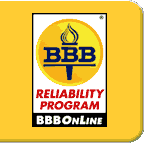Course Description:
Linear equations , linear systems, linear inequalities, and quadratic equations
verbally, numerically, graphically,
and symbolically. Explores topics using a graphic calculator as well as
traditional approaches.
Notice: Credits earned apply for enrollment (eligibility) but do not apply
toward a degree; satisfies no university
or college requirement.
Learning Objectives:
• To review basic math skills
• To learn how to master math skills for higher level math classes
• To learn how to use math skills and formulas to solve practical problems
Required Textbook, Class Notes, Calculator
Introductory and Intermediate Algebra, 2007; Miller, O’Neill, Hyde
Class notes and worksheets  Stanley Leung
Stanley Leung
Calculator: TI-83 or TI-84 is highly recommended
• Bring your calculator to every class meeting.
• You must not share calculators, textbooks, or class notes during quizzes,
tests, or the final examination.
Notice: You must not use cell phones or cell-phone calculators during quizzes,
tests, or the final examination.
Class format
The course consists of lectures, demonstrations, in-class activities, and
working problems together.
Grading Criteria
• Absences and excuses do not improve grades.
• Patience, hard work, and determination lead to a rewarding learning experience
in this class.
How to do well in this course?
To do well in this course, your responsibilities include: Attend all
classes. Take all quizzes, tests, and the final
examination. Submit homework assignments and in-class assignments on time. Do
all required course work.
Study class notes daily. Read the book daily. Do at least 20 math problems
daily. Understand the connections
between concepts. Review the course syllabus and understand course polices.
Notice:
• Three or more absences can affect your grade, due to missed work, and
explanation of concepts
• You are responsible for the material covered, course-related information, and
announcements made during
the class(es) that you miss.
• To succeed in Math 70, attendance and class participation are essential.
Recommendations to succeed:
The number of hours per week that you will need to put into Math 70 depends
on many factors including your
background in math and how long you have been away from math. Be aware that the
expected average for a
college course is 2 to 3 hours outside of class for every hour in class (each
credit hour) each week. You may not
need to spend that much time, or you may find that you need even more. If you
are not able to spend 10 to 15
hours per week studying and working on the content of Math 70 outside of the
classroom and you find yourself
falling behind, don’t get down on yourself and don’t start thinking you are just
not good at math. Blame your
lack of time, not your abilities. Use office hours and tutoring center to get
help. Do not wait.
In-class activities
Besides lectures, the instructor provides guided activities to illustrate
and reinforce math concepts. The
instructor assigns and collects in-class assignments. Students may work in teams
of two. Students studying in
teams can improve understanding math concepts, learning skills, and calculator
skills; and make new friends,
too.
Notice:
• To receive credit for in-class assignments, you must be present in class . No
excuses.
• In-class assignments must be turned in at the end of a class period, unless
instructed otherwise.
• You can receive 50% of the credit if the following situation occurs: “I forgot
to turn in my in-class
assignment yesterday (or last time).” This consideration can be used only one
time per term .
Homework assignments
You and your classmate may solve homework problems together. However, the
work you turn in must be
your own. The instructor gives you a homework assignment every day.
You must hand in your homework assignment at the start of class.
Homework deadline: 5 minutes after the start of class on the due
date.
For each assignment, the instructor use random numbers to determine which
problems will be graded. The
instructor takes two points off for every missing problem from that assignment.
Policy on late homework assignments
You are allowed to turn in one late homework assignment (up to 3 school
days late) without penalty. Use it for
an emergency only.
No credit for late homework assignments. No excuses. Even if you
turn assignments in, the
instructor will not grade late homework assignments. |
Quizzes
Periodic quizzes verify your understanding of the lectures, textbook material,
guided in-class activities,
homework assignments, and the course syllabus. All quizzes are closed-book and
closed-notes. The quiz format
consists of true-or-false questions, multiple-choice questions, and problems
similar to problems of homework
assignments and in-class assignments. Quiz questions may be taken from homework
assignments. Quizzes start
at 4:00 p.m.
Tests
The test format consists of true-or-false questions, and multiple-choice
questions, problems similar to
problems of homework assignments and in-class assignments, and the course
syllabus. All tests are
closed-book and closed-notes. Tests start at 4:00 p.m.
Policy on quizzes and tests:
If you are unable to take a quiz or test at the scheduled time due to
unforeseeable circumstances, please observe
the following:
 With a legitimate documented excuse
(doctor’s note, employer’s note, or invoice), you will receive full
credit With a legitimate documented excuse
(doctor’s note, employer’s note, or invoice), you will receive full
credit
for the make-up quiz or test.
 Without a documented excuse, you
will receive a maximum of 30% full credit for the make-up quiz or test. Without a documented excuse, you
will receive a maximum of 30% full credit for the make-up quiz or test.
The make-up test or quiz must be taken within 4 school days after
the scheduled test or quiz. All make-up tests
or quizzes must be taken during office hours.
Situations such as job interviews may arise. Students must arrange (and
get approved by the instructor) at least 24 hours
before the scheduled time of a quiz or test. The instructor will not
accept explanations for being absent from a quiz or test
after the scheduled time of a quiz or test. |
Final Examination
The final examination is comprehensive and covers all lectures through the end
of the term. This is an openbook
and open-notes examination. The final examination consists of true-or-false
questions, multiple-choice
questions, calculations, and applications.
Classroom courtesy
Students are required to maintain civilized behavior in the classroom, so
that everyone can hear, and learn. Out
of respect for your fellow students, come to class on time.
Turn off electronic devices, including laptop computers, pagers, music
players, and cell phones.
If you have to talk on the cell phone or your cell phone rings in the classroom,
you are expected to leave the
classroom.
This is not a music appreciation class; if you must listen to music, you
are expected to leave the classroom.
If you are late (more than 3 minutes late), wait until the class meeting is
over, to ask the instructor for handouts,
graded work, or take your quiz. Do not interrupt the class.
Questions or Concerns?
If you have questions relating to the course materials or concerns about
your progress in this course, contact me
by e-mail or stop by my office during office hours. Use office hours to discuss
your graded assignments,
quizzes, and tests. I cannot take class time to discuss your individual issues.
Students with Learning Disabilities
If you have a documented disability which requires any academic
accommodations, you must go to the Office of
Disability Services (ODS) for appropriate coordination of your accommodations.
You can drop by APSC 405 or
contact ODS at (503) 838-8250 (V, TTY) to schedule an appointment.
Notice
• To be fair to all students in Math 70, the instructor strictly enforces the
course policies. For individual
situations not covered in the course policies, the instructor will act at his
discretion. Additional information
relating to the course material or assignments will be handed out or announced
in class. You are
responsible for the material covered, course-related information, and
announcements made during
the class(es) that you miss.
• The instructor does not use class time to return graded assignments, quizzes
and tests.
Tentative Course Outline
| Week |
Chapter |
Topics |
| 1 |
R-2 |
Operations on fractions |
| 2 |
1.1
1.2
1.3
1.4
1.5 |
Sets of numbers and the real number line
Order of operations
Additions of real numbers
Subtraction of real numbers
Multiplication and division of real numbers
Quiz 1 (Tuesday) |
| 3 |
1.6
2.1
2.2 |
Properties of real numbers and simplifying
expressions
Addition, subtraction, multiplying, division properties of equality
Solving linear equations
Review (Tuesday)
Test 1 (Thursday) |
| 4 |
2.3
2.4 |
Linear equations: clearing fractions and decimals
Applications of linear equations
Quiz 2 (Thursday) |
| 5 |
2.7
3.1
3.2 |
Linear inequalities
Rectangular coordinate system
Linear equations in two variables
Quiz 3 (Thursday) |
| 6 |
3.3
4.1
4.2
4.3 |
Slope of a line
Exponents
More properties of exponents
Definitions of b0 and b-n.
Review (Tuesday)
Test 2 (Thursday) |
| 7 |
4.5
4.6 |
Addition and subtraction of polynomials
Multiplication of polynomials
Quiz 4 (Thursday) |
| 8 |
5.1
5.2
5.3 |
Greatest common factor and factoring by grouping
Factoring trinomials : grouping method
Factoring trinomials: trial-and- error method
Quiz 5 (Thursday) |
| 9 |
5.4
6.1
6.2 |
Factoring perfect squares trinomials and
differences of squares
Introduction to rational expressions
Multiplication and division of rational expressions
Review (Tuesday)
Test 3 (Thursday) |
| 10 |
6.3
6.4 |
Least common denominator
Addition and subtraction of rational expressions
Quiz 6 (Tuesday)
Review (Thursday) |
| 11 |
|
Final Exam (Comprehensive): 4:00 – 5:50
p.m.., Monday, June 8, 2009 |
Note: This outline gives you a rough sense of our course
of study. We go faster on some simple topics, and
slower on some important concepts. We will cover and learn as much as we can.
As is so often the case in life, one major attraction of doing things the wrong
way is that it is so
much easier.
Joel Best, Professor of sociology, University of Delaware



